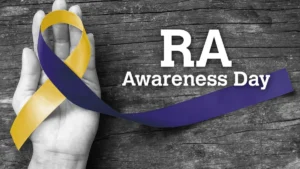Every year on February 1st, India celebrates the Indian Coast Guard Day, a tribute to the valour, dedication, and service of the personnel safeguarding the country’s maritime interests. The day honours the relentless efforts of the Coast Guard officers and personnel in maintaining maritime security and responding to emergencies at sea. In 2024, the Indian Coast Guard will commemorate its 48th Raising Day, marking nearly half a century of its commitment to the nation’s coastal defence.
A Salute to the Guardians of the Sea
On the eve of the 75th Republic Day celebration on January 26, 2024, President Droupadi Murmu approved the prestigious President’s Tatrakshak Medal and Tatrakshak Medal for selected awardees of the Indian Coast Guard. These awards recognize the extraordinary bravery and service of Coast Guard personnel in protecting India’s maritime boundaries and their proactive response to emergencies at sea.
The History and Significance of the Indian Coast Guard
Established on February 1, 1977, the Indian Coast Guard was created to combat sea-borne smuggling, which was adversely affecting the Indian economy. Since its inception, the Coast Guard’s responsibilities have expanded to encompass offshore security, marine safety, coastal security, and the safeguarding of India’s Exclusive Economic Zone (EEZ). Recognized by the Parliament on August 18, 1978, February 1st was officially designated as Indian Coast Guard (ICG) Day.
The Indian Coast Guard is lauded as the fourth largest in the world, according to the Comptroller and Auditor General of India. The synergy between the Coast Guard, the Indian Navy, the Customs Department, and the Police forms the backbone of India’s maritime security network. The Coast Guard operates across various regions, including the North-West region in Gandhinagar, Gujarat, the East region in Chennai, and the North East region in Kolkata, as well as the strategic Andaman and Nicobar regions.
Indian Coast Guard Day 2024, Theme of the Year
The Indian Coast Guard Day is celebrated annually under a specific theme chosen by the administration, symbolizing the focus and vision for the year. The theme for the 2024 celebration, however, is yet to be announced. The chosen theme will undoubtedly reflect the Coast Guard’s commitment to innovation, excellence, and enhanced maritime cooperation.
Important Questions Related to Exams
- Rakesh Pal is the current Director General of the Indian Coast Guard;
- DG of the Indian Coast Guard Founded: 1 February 1977;
- Indian Coast Guard Headquarters: Indian Coast Guard Headquarters, New Delhi.




 Rheumatoid Arthritis Awareness Day 2026:...
Rheumatoid Arthritis Awareness Day 2026:...
 World Wetlands Day 2026: Can Traditional...
World Wetlands Day 2026: Can Traditional...
 Why Does India Celebrate Its Coast Guard...
Why Does India Celebrate Its Coast Guard...








